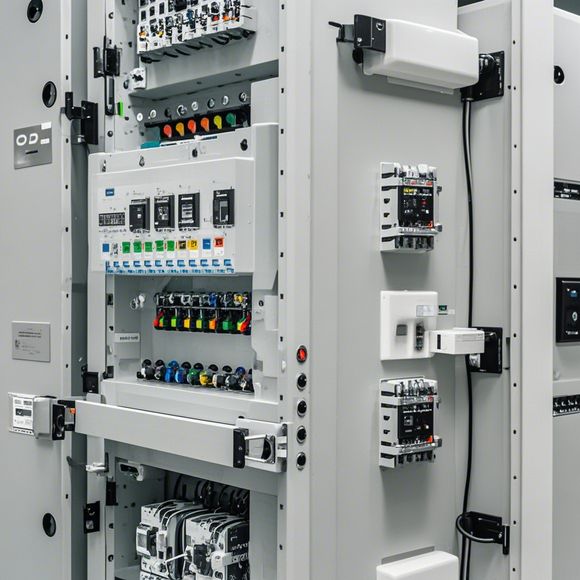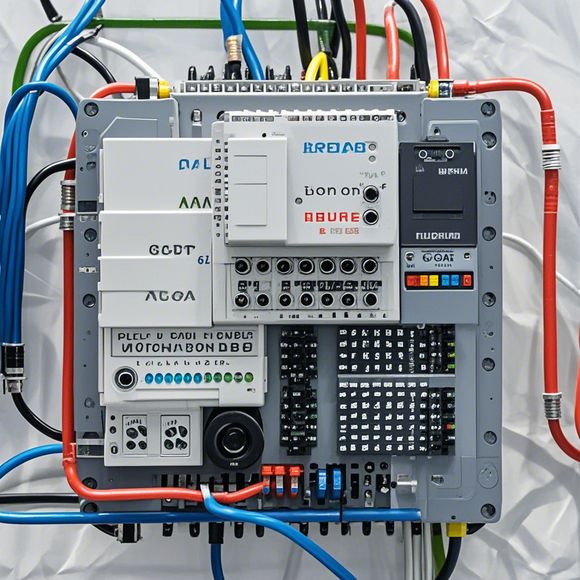PLC Controllers: Mastering the Art of Industrial Control Systems
Industrial PLC controllers are the backbone of modern industrial automation. They allow for precise and efficient control of complex systems across a wide range of industries, from manufacturing to healthcare and beyond. Mastering these controllers requires not just technical knowledge but also understanding of the underlying principles that make them work.Firstly, one must be familiar with the different types of PLCs available in the market, each with its own unique features and capabilities. This includes learning about their architecture, communication protocols, and programming languages.Secondly, mastering the programming language is crucial for creating and maintaining PLC programs. This includes understanding syntax, data types, and operators, as well as how to program loops, conditionals, and user-defined functions.Finally, understanding the application of PLCs within the context of industrial control systems is essential. This involves not just programming but also troubleshooting, maintenance, and optimization of the system.Overall, mastering PLC controllers requires a deep understanding of both the hardware and software components involved in industrial control systems. With this knowledge, anyone can become an expert in the art of industrial control systems.
Opening statement:
Hello fellow industry professionals! Today, I'm excited to dive into the fascinating world of industrial control systems, specifically focusing on the powerhouse of automation and precision - PLC controllers. These marvelous devices are not only instrumental in keeping our manufacturing operations running smoothly but also play a crucial role in ensuring that every aspect of our production process is meticulously monitored, controlled, or automated. So, let's get started by understanding how these marvelous controllers work and their significance in today's dynamic world of industrial automation.
Introduction to PLC Controllers:
A PLC (Programmable Logic Controller) is an intelligent device that is designed to execute specific instructions programmed into its memory. It is a versatile solution that has revolutionized the way we approach industrial automation by providing a high-level interface for controlling various machines in a factory floor. These controllers have become the backbone of modern manufacturing as they enable precise control over machinery, processes, and even entire production lines.

What Makes PLC Controllers Special:
One of the defining features of PLC controllers is their ability to handle complex tasks with minimal human intervention. Unlike traditional manual controls, which can be prone to errors and require extensive training to operate, PLC controllers offer unparalleled accuracy, speed, and flexibility. With their built-in software, they can perform complex calculations, analyze data, and respond quickly to changing conditions, ensuring that your production runs efficiently and reliably.
Another critical advantage of PLC controllers is their ability to communicate with other devices in the factory network. They can connect to sensors, actuators, and other control systems to provide real-time feedback and adjustments to maintain optimal performance. This connectivity enables seamless integration between different systems within the factory floor, resulting in streamlined operations that minimize downtime and improve overall productivity.
The Importance of PLC Controllers in Modern Manufacturing:

In today's competitive business landscape, manufacturers rely heavily on PLC controllers to stay ahead of the competition. By implementing advanced automation technologies, companies can significantly reduce labor costs and improve efficiency while maintaining product quality. For example, using PLC controllers, a company can automate assembly lines, optimize production schedules, and streamline inventory management. These benefits not only drive economic growth but also contribute to sustainable development by reducing environmental impact and minimizing waste.
However, while PLC controllers offer numerous advantages, they also come with some challenges that must be addressed. One of the main concerns is the need for skilled technicians to maintain and troubleshoot these complex systems. To address this issue, many companies have implemented training programs and certification initiatives to ensure that their staff is equipped with the knowledge and skills necessary to operate these sophisticated controllers effectively.
Another important aspect of PLC controllers is their compatibility with different types of hardware and software. As technology continues to evolve, new models of PLC controllers are being developed that offer improved performance, increased functionality, and better integration with emerging technologies such as artificial intelligence and machine learning. Companies must be prepared to invest in the latest advancements in order to remain competitive in the market.
Conclusion:

In conclusion, PLC controllers are essential tools for modern manufacturing operations as they provide the precision, speed, and flexibility required to achieve optimal results. Whether you're a small-scale entrepreneur or a large enterprise, investing in PLC controllers can help you streamline your operations, reduce costs, and increase profits. Remember, when it comes to industrial automation, nothing beats the power of a well-maintained PLC controller that can keep your factory running like clockwork. So don't wait any longer; embrace the future of manufacturing with the help of PLC controllers and watch your business flourish!
Content expansion reading:
Articles related to the knowledge points of this article:
PLC Controller for Manufacturing Automation
PLC (Programmable Logic Controller) Control System Basics
Plumbers Rule! The Role of PLC Controllers in the World of Waterworks
The Role of Programmable Logic Controllers (PLCs) in Foreign Trade Operations
Connecting a PLC Controller to Your Computer
PLC Controllers: A Comprehensive Guide to Understanding Their Prices